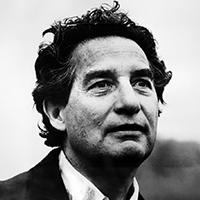Profile of Octavio Paz
Born : 31 Mar 1914 | New Mexico
Died : 19 Apr 1998 | New Mexico, Mexico
Octavio Paz Lozano, born on March 31, 1914, in Mexico City, was a renowned Mexican poet, writer, and diplomat. Despite growing up in financially straitened circumstances due to the Mexican Civil War, Paz had access to an excellent library stocked by his grandfather, a politically active liberal intellectual. He was educated at a Roman Catholic school and at the University of Mexico1. At the young age of 19, he published his first book of poetry, “Luna silvestre” (“Forest Moon”) in 1933. In 1937, he visited Spain and identified strongly with the Republican cause in the Spanish Civil War1. His reflection on that experience, “Bajo tu clara sombra y otros poemas” (“Beneath Your Clear Shadow and Other Poems”), was published in Spain in 1937 and revealed him as a writer of real promise.
Paz founded and edited several important literary reviews, including “Taller” (“Workshop”) from 1938 to 1941 and “El hijo pródigo” (“The Prodigal Son”), which he co-founded in 1943. He also produced prose volumes of essays and literary criticism, including “El laberinto de la soledad” (1950; “The Labyrinth of Solitude”), an influential essay in which he analyzes the character, history, and culture of Mexico. Paz entered Mexico’s diplomatic corps in 1945 and served in a variety of assignments, including one as Mexico’s ambassador to India from 1962 to 1968.
Paz’s career as a poet and essayist earned him numerous national and international awards. He was awarded the Jerusalem Prize in 1977, the Cervantes Prize in 1981, and the Neustadt International Prize for Literature in 19824. Finally, he received the Nobel Prize for Literature in 1990. He passed away on April 19, 1998, in Mexico City. His influence and impact on literature and thought extend beyond his native Mexico, making him a significant figure in the global literary and intellectual community

